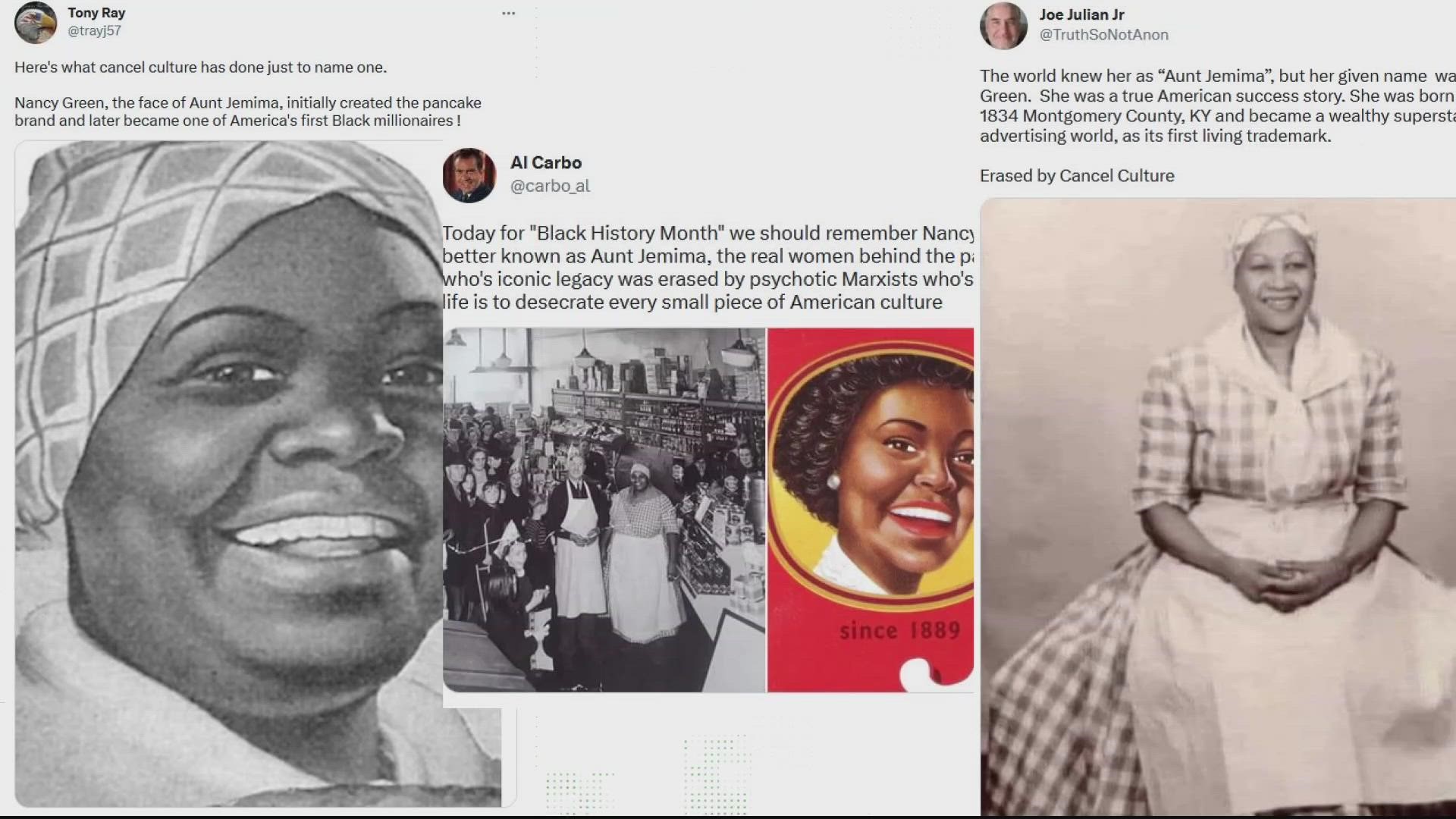WASHINGTON — Social media got a little sticky when actor Ben Stein complained about changes to Aunt Jemima brand syrup and pancake mix on his Truth Social account.
"Because of the inherent racism of America's corporate culture, they decided to make it a white person, or maybe no person at all," Stein said in the video, referencing the 2021 rebrand that removed the character from the name and packaging.
Responses to the video stirred up shares of an old myth that the actress who portrayed Aunt Jemima became one of America's first Black millionaires. Is that true?
THE QUESTION
Did Nancy Green, the first woman to portray the Aunt Jemima character, really become a millionaire?
THE SOURCES
Historian Karen Cox
THE ANSWER
No. There is no evidence that Nancy Green became a millionaire from her work as Aunt Jemima.
WHAT WE FOUND
Nancy Green, was a formerly enslaved black woman – before the Aunt Jemima campaign, she was working as a housekeeper in Chicago.
In 1893, the R.T. Davis Milling Company hired Green to appear as Aunt Jemima at the Chicago World’s Fair. At the fair she made pancakes for thousands of people, telling stories about plantation life – written by her white employers. Green continued to play the role for decades.
So it’s true that Green was the first Aunt Jemima. But did she really become a “wealthy superstar?”
"She was no superstar," said historian Karen Cox. Cox has researched and written about Green in her book, "Dreaming of Dixie."
“She probably made a nominal fee for every time she performed as Aunt Jemima, but the money that was being made was for... It's the Quaker Oats company that made the millions,” Cox said.
In 1910, Green listed her occupation as a housekeeper in a private residence - an unlikely job for a superstar millionaire. After her death in 1923, her obituaries also made no mention of any notable wealth.
So, we can verify that no, there’s no evidence that Nancy Green became a millionaire from her work as Aunt Jemima.
But there is evidence the term “Aunt Jemima” is based on a Jim-Crow-era caricature of African-American women, rooted in racist tropes – which is why Quaker Oats opted to rebrand.

